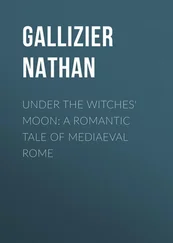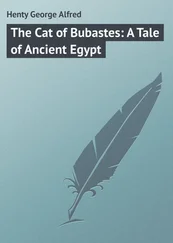John Graham - Neæra. A Tale of Ancient Rome
Здесь есть возможность читать онлайн «John Graham - Neæra. A Tale of Ancient Rome» — ознакомительный отрывок электронной книги совершенно бесплатно, а после прочтения отрывка купить полную версию. В некоторых случаях можно слушать аудио, скачать через торрент в формате fb2 и присутствует краткое содержание. Жанр: foreign_antique, foreign_prose, на английском языке. Описание произведения, (предисловие) а так же отзывы посетителей доступны на портале библиотеки ЛибКат.
- Название:Neæra. A Tale of Ancient Rome
- Автор:
- Жанр:
- Год:неизвестен
- ISBN:нет данных
- Рейтинг книги:3 / 5. Голосов: 1
-
Избранное:Добавить в избранное
- Отзывы:
-
Ваша оценка:
- 60
- 1
- 2
- 3
- 4
- 5
Neæra. A Tale of Ancient Rome: краткое содержание, описание и аннотация
Предлагаем к чтению аннотацию, описание, краткое содержание или предисловие (зависит от того, что написал сам автор книги «Neæra. A Tale of Ancient Rome»). Если вы не нашли необходимую информацию о книге — напишите в комментариях, мы постараемся отыскать её.
Neæra. A Tale of Ancient Rome — читать онлайн ознакомительный отрывок
Ниже представлен текст книги, разбитый по страницам. Система сохранения места последней прочитанной страницы, позволяет с удобством читать онлайн бесплатно книгу «Neæra. A Tale of Ancient Rome», без необходимости каждый раз заново искать на чём Вы остановились. Поставьте закладку, и сможете в любой момент перейти на страницу, на которой закончили чтение.
Интервал:
Закладка:
Not far away was a sharp turn in the road. The tramp of horses and the jingle of accoutrements smote on their ears.
‘Bungling fool!’ hissed the mysterious figure, springing forward to complete the work in which, so far, the Suburan had been foiled. But he was met, and rudely thrust back by the powerful arm of the confederate who had knocked the Senator down from behind.
‘Take your time, my lad,’ bellowed that individual hoarsely, ‘he’s more mine than yours.’
The slash of a poniard was the answer, and they closed in a struggle, when the others suddenly raised a cry of ‘ Cave! ’ and fled in all directions into the recesses of the wood. A body of horsemen had rounded the bend in the road and was almost upon them. They were in military attire, and the moon glittered on their polished helmets and the trappings of the horses. The foremost trooper immediately sprang to the ground and rushed forward, followed by two or three more. The struggling men parted and darted into the grove after their companions, whilst the foremost of the new-comers, singling out Cestus, followed him at the top of his speed. He was in a few moments hard upon the heels of the Suburan, who strained every nerve in fear of his pursuer, who possessed a far fleeter foot than himself. Fortune favoured him just at the critical moment, when, in terror, he seemed to feel a hand upon his collar. The outgrowing, straggling roots of a tree tripped the foot of the trooper, and he flew, with a dire crash, to the ground. The fall was so violent that he lay for a few seconds stunned. When he picked himself up, the whole of the flying vagabonds had disappeared among the gloomy boles, like water through a sieve, leaving neither trace nor sound behind. He shook himself with a laugh, and gathering up his brazen helmet, walked back to the road. Some others of the troop were here dismounted, using their best efforts to revive the unconscious Fabricius. Flasks were produced; wine and water were poured into his mouth and rubbed on his temples. The two inanimate slaves were laid side by side until a helmet full of water could be brought from a neighbouring fountain to be dashed upon them.
The soldier we have particularised knelt down beside the prostrate Fabricius. ‘Is he badly hurt?’ he asked.
‘It is hard to say, Centurion; but, dead or not, it is a man of the Senate,’ replied the comrade, who was bathing the old man’s forehead.
‘Humph!’ said the Centurion, ‘is, or was, rather – he wears only the narrow band. However, he is worth the trouble of a few minutes. Do your best. Do you object to wait for a brief time, Drusus?’
This question was addressed to one who sat motionless on his horse close by. Leading reins were attached to his charger’s bridle and held by a mounted soldier on each side.
‘No!’ replied this person, ‘I hold this delay as kind and fortunate, for the pleasant moonlight and the sweet air of heaven will soon know me no more.’
Fabricius soon showed symptoms of life, and then his recovery was rapid. He sat up and glanced around. ‘Where am I? What is all this? Ah, I know,’ he ejaculated. ‘I remember! – but you?’
‘Why, simply in this way,’ responded the officer; ‘we saw you on the ground, and a couple of night-hawks squabbling over you. A few moments later, and probably you would never have spoken again on earth.’
‘Most surely – robbed of what little money I have about me, and deprived of my life as well. I have been decoyed into a trap,’ said Fabricius, rising to his feet, with the help of the Centurion’s arm. ‘Thanks! My name is Quintus Fabricius, and I dwell on the Janiculum. I owe my life to you this night, and I will prove my gratitude, if my means and exertions are able to do so.’
‘There needs no thought, but thankfulness, that we chanced to arrive so opportunely. The rest was easy – they ran off when they caught sight of us – we came, saw, and conquered!’ said the officer, laughing.
‘Be that for me to determine,’ rejoined Fabricius; ‘I will ask but two things of you.’
‘Name them.’
‘The first is the name of one I have cause to remember.’
‘We are a good score of fellows – would you wish for them all?’
‘Thine only. Through you I shall know the rest.’
‘For their sakes, then, we are Pretorians.’
‘So I see,’ observed Fabricius, with gentle impatience.
‘Well, then, I am Centurion thereof, and my name Martialis. But what of that? We all have done, one as much as another, and the whole amounts to nothing, – come, sir, and I will send two or three to guard you home.’
The old man, still somewhat confused and trembling, murmured once or twice the name he had heard, as if it bore some familiar sound.
‘Your name seems to ring in my ears as if I had heard it of old,’ he said; ‘but that in good time. Having given me your name, you will not, therefore, refuse me the honour of your friendship. Give me your word, you will visit me, and speedily. In the Transtibertine I am to be found by the simple asking.’
‘Willingly! I accept your kindness with pleasure,’ answered Martialis, with growing impatience to go onward.
‘Come with me now! Your men could return without you,’ urged the old man.
‘What – entice me from my duty! Nay, you would not,’ cried Martialis, shaking his head and laughing.
‘He would be bold, indeed, who would try to seduce an officer of our Prefect,’ interposed the quietly bitter voice of him who sat on the led horse, ‘especially when that zealous and frank-minded Prefect sends his officer to lead a son of Germanicus, like a felon, to Rome.’
‘What! – of Germanicus!’ exclaimed Fabricius, in astonishment, and ere he could be stopped he pushed up to the speaker and seized his hand.
‘Drusus – of that same unhappy family. Evil fate spares us not.’
‘Your pardon, Prince, but this is against my orders,’ interposed Martialis, quickly and firmly; ‘you will not compel me to enforce them?’
‘Enough! Lead on!’ responded the ill-fated prince, in a mournful voice. ‘Farewell, friend, whoever thou art.’
‘March!’ commanded the Centurion, and the band proceeded. He himself walked on foot at its head, in order to lend the old Senator the support of his arm. The slaves Pannicus and Cyrrha, with no worse effects of their adventures than a confused singing in their heads, brought up the rear. In this wise they continued, until they had crossed the mount and descended to the level ground near the Trigeminan Gate. Here Fabricius took leave of his preserver, with a few warm heartfelt words of thanks, and Martialis detached two of his men to escort him home. Continuing on his way the Centurion led his troop in double file. The clang of the horses’ hoofs, with the jingle of accoutrements, awoke the echoes of the silent, empty streets. Ascending the Palatine they halted before the Imperial palace, and were received by an official and a few slaves. The prisoner was desired to dismount, and he was led into the palace. The lights of the interior showed him to be a young man of not more than one or two-and-twenty, and he maintained the sullen expression of one who has suddenly been made the victim of deceit.
‘Is this my journey’s end?’ he asked of Martialis.
‘Here I must quit you, noble Drusus; I have no further instructions than to leave you in charge of the keeper of the palace.’
‘Take me to my room then,’ said the prince, haughtily, to the keeper, ‘where I may eat, and drink, and sleep, and forget what I am.’
The keeper obeyed and led the way through the halls of Caesar, until they arrived at a narrow passage, which terminated in a descending flight of stone steps.
‘Whither are you taking me?’ demanded the prisoner sternly, as he came to a sudden halt.
Читать дальшеИнтервал:
Закладка:
Похожие книги на «Neæra. A Tale of Ancient Rome»
Представляем Вашему вниманию похожие книги на «Neæra. A Tale of Ancient Rome» списком для выбора. Мы отобрали схожую по названию и смыслу литературу в надежде предоставить читателям больше вариантов отыскать новые, интересные, ещё непрочитанные произведения.
Обсуждение, отзывы о книге «Neæra. A Tale of Ancient Rome» и просто собственные мнения читателей. Оставьте ваши комментарии, напишите, что Вы думаете о произведении, его смысле или главных героях. Укажите что конкретно понравилось, а что нет, и почему Вы так считаете.












